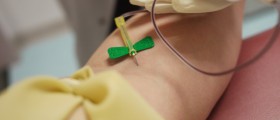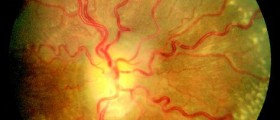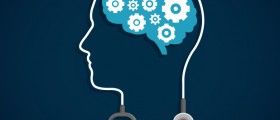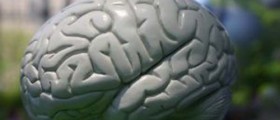
Syncope
Syncope can be defined as transitory loss of the consciousness. Apart from losing consciousness the patient may as well experience weakness of muscles which consequently leads to falls.
Syncope results from insufficient supply of the brain with blood. To be more precise, this lack of blood and essential nutrients, oxygen and glucose, has to affect either reticular activating system in the brain or both brain hemispheres at the same time.
Causes of Syncope
There are different reasons why blood cannot properly reach the brain. The first reason may be connected to insufficient pumping of the heart. If the heart is weak it cannot pump enough blood and the brain does not get enough nutrients. Furthermore, tonicity of brain blood vessels may be weak and they may not be able to deliver blood to the brain. Another explanation is connected to insufficient amount of blood and fluid in all the blood vessels of the body. And finally, a combination of any of the previously mentioned causes may lead to syncope.
Symptoms and Signs of Syncope
The leading symptom of syncope is fainting. Patients are not even aware that they have lost consciousness.
In some patients certain symptoms may warn on forthcoming syncope. Right before syncope patients may experience lightheadedness, nausea and general weakness. He/she may also sweat a lot. Vertigo and blurred vision may introduce syncope as well. And finally, the patient may experience tingling sensations. Fortunately, this introduction to actual syncope is not accompanied by loss of consciousness.
During the very syncope patient's body may twitch a few times. This twitching together with loss of consciousness may be misinterpreted as a seizure. After the attack patients may feel a bit confused. Still, this withdraws pretty soon.
Diagnosing Syncope
The history is very important for a doctor to establish the actual cause of the attack. It is significant that all the people who have witnessed syncope retell the attack to a tiny detail. The doctor will then perform a physical examination of the patient. EKG is performed and it may point to certain abnormalities in heart's rhythm which may be the actual cause of syncope. Measuring blood pressure in lying and standing position may confirm or rule out orthostatic hypotension as a cause of syncope. The doctor will also perform neurological examination in order to find the exact cause of the attack.
Furthermore, screening blood tests may be of additional help. The level of electrolytes, glucose and kidney function tests may be helpful as well. And in some patients even thyroid blood tests are performed.
Additional examinations include holter monitor and some patients even undergo CT scan or MRI of the brain.
After the actual cause has been established further attacks of syncope can be successfully prevented by treating the underlying disease.








-Symptoms,-Diagnosis,-Treatment_f_280x120.jpg)







Your thoughts on this
Loading...